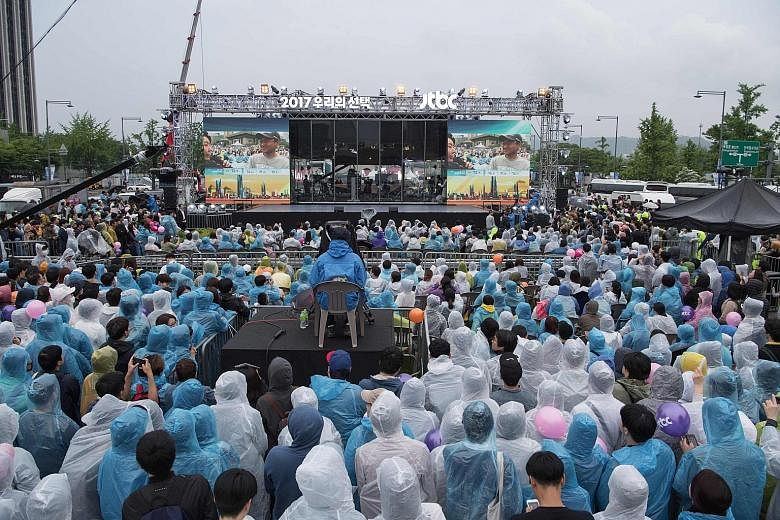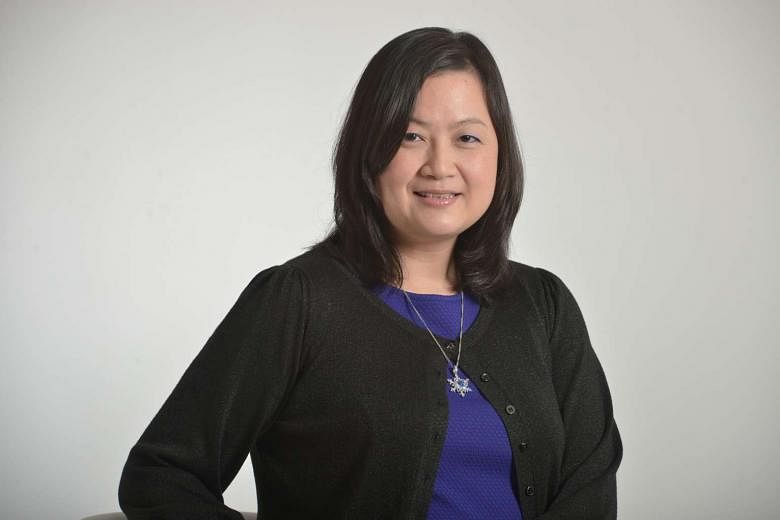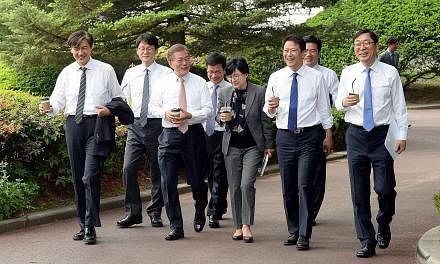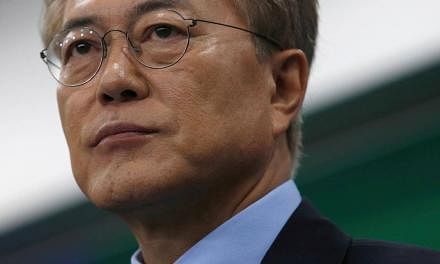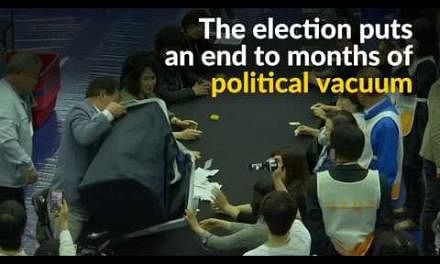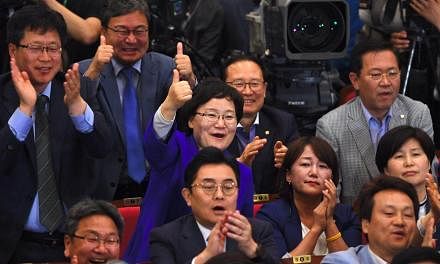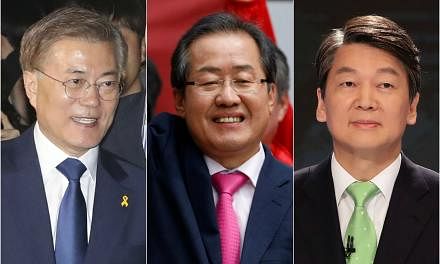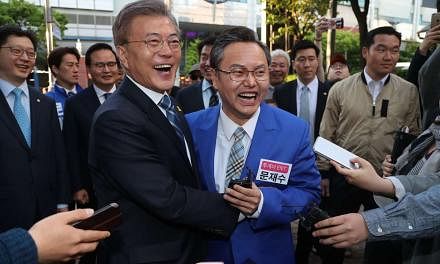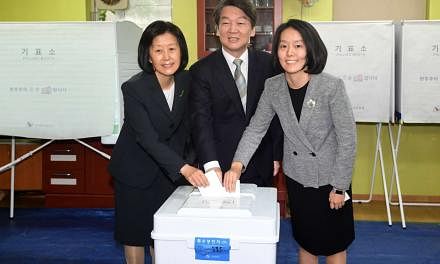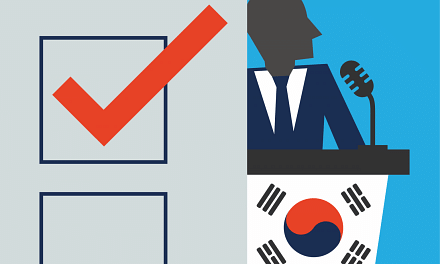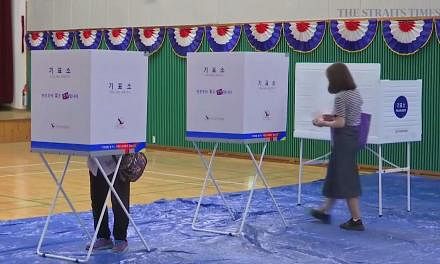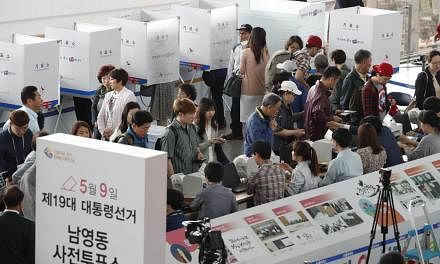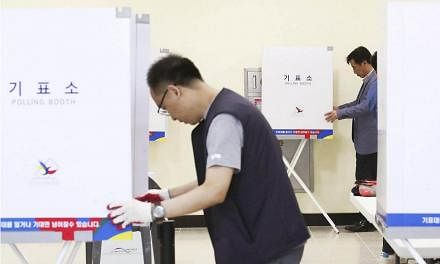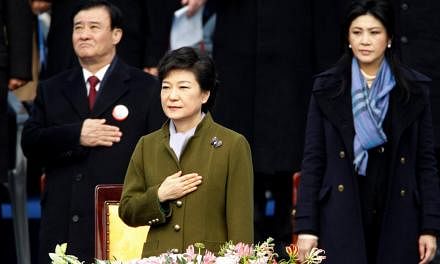South Korea's newly elected president will face multiple challenges to bring the country back on track after months of political turmoil stemming from the impeachment of its previous leader Park Geun Hye.
Exit polls indicated that former human rights lawyer Moon Jae In from the liberal Democratic Party would win in a landslide victory, with 41.4 per cent of votes cast yesterday. The official results will be announced this morning.
Mr Moon is expected to be sworn in today, but has said he would skip an elaborate inauguration ceremony and get to work immediately. He will have to quickly appoint his Cabinet, including a prime minister and ministers in key portfolios like defence, foreign affairs and finance.
But for any decision that requires parliamentary approval, like the nomination of a prime minister or reform Bills that he earlier pledged, he will likely face strong opposition from the other parties. Mr Moon's party - while the biggest in Parliament with 40 per cent of some 300 seats - is short of the two-thirds majority required to pass Bills.
"Without any reshuffling or new coalitions, we can expect a lot of gridlock on important issues and decisions," said research fellow James Kim at Seoul's Asan Institute for Policy Studies. "They all support some form of reform, but the conservatives and the progressives have very different opinions on how to go about doing it."
Dr Kim added that the same problem applies to reforms Mr Moon pledged. These include labour reforms and plans to change the powerful conglomerate system.
On the diplomatic front, analysts said Mr Moon would find himself in the unenviable position of being squeezed by South Korea's neighbours and the big powers.
He would have to deal with the whims and fancies of US President Donald Trump, while trying to push for a more assertive South Korea.
Mr Moon has maintained that the hasty deployment of the US Terminal High Altitude Area Defence missile shield should be reviewed. China's economic retaliation over the deployment has hit South Korea's tourism, entertainment and beauty sectors.
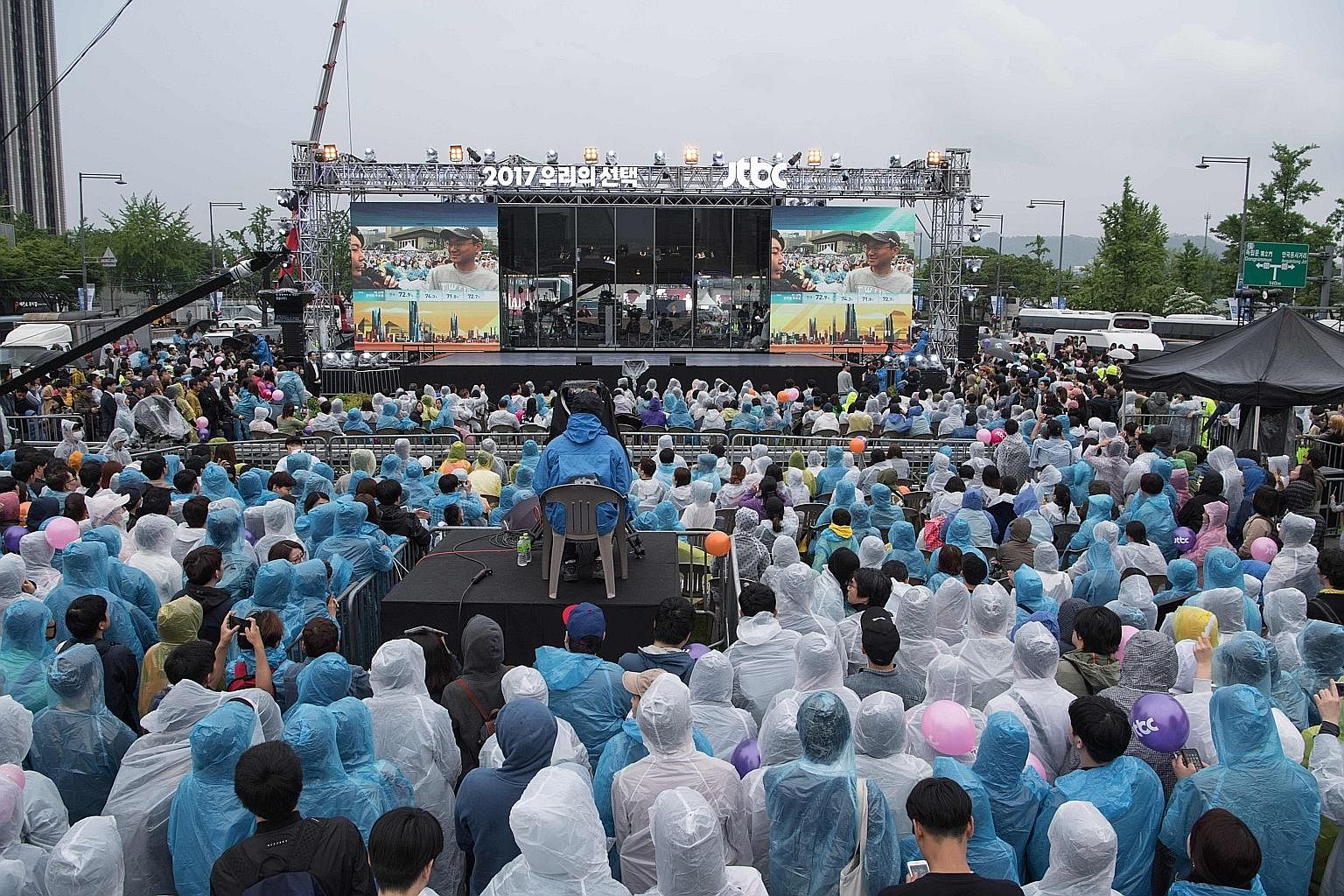
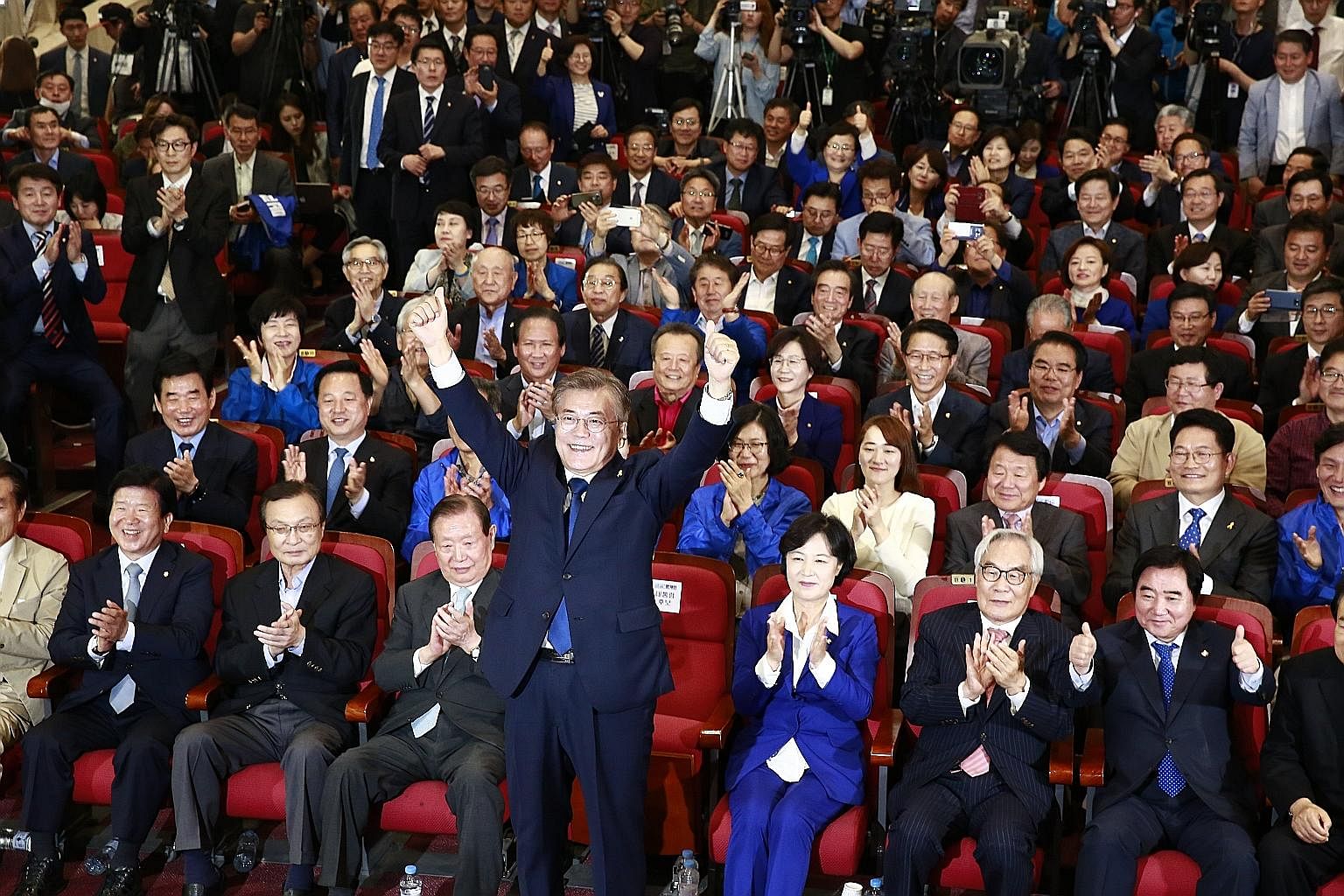
How he handles North Korea will also be scrutinised. He has said he will try to improve inter-Korea ties, giving rise to the term "Moonshine Policy" after the Sunshine Policy advocated by former presidents Kim Dae Jung and Roh Moo Hyun.
US scholars have warned that a liberal government could spell trouble for the US-South Korea alliance, and that Mr Moon, a son of North Korean refugees, may be too soft on the nuclear-armed North. Pyongyang, though, will welcome a more conciliatory approach.
Dr Katharine Moon from the Washington-based think-tank Brookings Institution said Mr Moon should take gradual steps to improve inter-Korea ties. "The first thing is to reduce the current military and political escalation created by both Pyongyang and Washington without Seoul's input."
On a controversial comfort women deal with Japan, Sejong Institute analyst Lee Seong Hyon said of Mr Moon: "As a seasoned politician, he fully understands that Japan is a neighbour he should work with, but he won't be soft on the comfort women issue."

